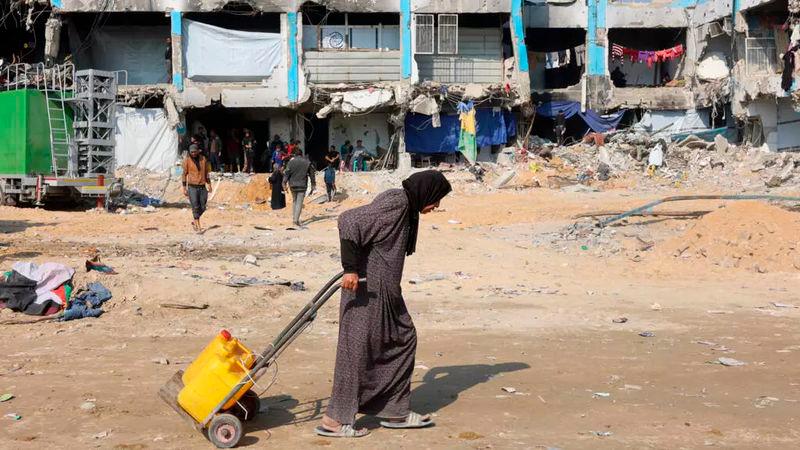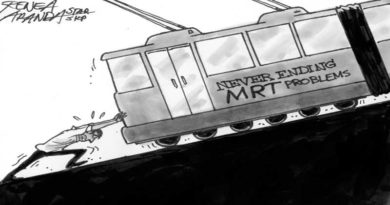FIRST THING LAST: TRUMP’S First 100 Days | First Buying Greenland, Now Claiming Gaza, Lastly? Trump following the dictatorial footsteps of Putin and Xi Jinping
Trump says US will ‘take over’ Gaza as he welcomes Netanyahu
February 5, 2025 |
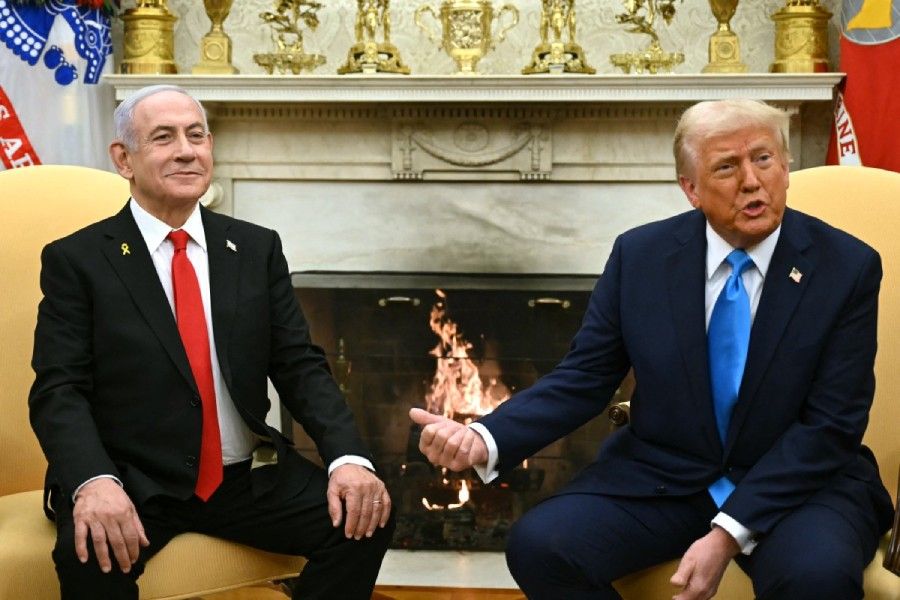
US President Donald Trump (R) meets with Israel’s Prime Minister Benjamin Netanyahu in the Oval Office of the White House in Washington, DC, on February 4, 2025.
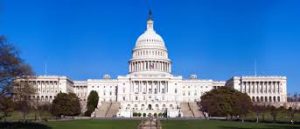 WASHINGTON, United States — President Donald Trump made an extraordinary proposal for the United States to “take over” the Gaza Strip, as he hosted Israeli Prime Minister Benjamin Netanyahu for crucial talks on the truce with Hamas.
WASHINGTON, United States — President Donald Trump made an extraordinary proposal for the United States to “take over” the Gaza Strip, as he hosted Israeli Prime Minister Benjamin Netanyahu for crucial talks on the truce with Hamas.
“The US will take over the Gaza Strip and we will do a job with it, too. We’ll own it,” Trump told a joint press conference with Netanyahu.
Trump said the United States would get rid of unexploded bombs, “level the site” and remove destroyed buildings, and “create an economic development that will supply unlimited numbers of jobs and housing for the people of the area.”
But Trump appeared to suggest that it was not Palestinians who would return there.
“It should not go through a process of rebuilding and occupation by the same people that have really stood there and fought for it and lived there and died there and lived a miserable existence there,” he said.
He said Gaza’s two million inhabitants should instead “go to other countries of interest with humanitarian hearts.”
Netanyahu hailed Trump as the “greatest friend Israel has ever had.”
He said the US president’s Gaza plan could “change history” and was worth “paying attention to.”
ADS by:
.
‘Great force’
Egypt and Jordan have flatly rejected Trump’s suggestion of moving Palestinians from Gaza.
The Palestinian envoy to the United Nations meanwhile said world leaders should “respect” the wishes of Palestinians.
Gazans have also denounced Trump’s idea. “Trump thinks Gaza is a pile of garbage — absolutely not,” said 34-year-old Hatem Azzam, a resident of the southern city of Rafah.
The US president has claimed credit for securing the first six-week phase of the Israel-Hamas truce after more than 15 months of fighting and bombing, and he was expected to urge Netanyahu to move to the next phase aimed at a more lasting peace.
Netanyahu earlier said “we’re going to try” when asked how optimistic he was about moving on to phase two.
He hailed Trump’s “great force and powerful leadership” in sealing the original ceasefire deal, and took a swipe at former president Joe Biden, with whom he had tense relations over the death toll in Gaza.
“When the other side sees daylight between us — and occasionally in the last few years they saw daylight — it’s more difficult. When we cooperate, chances are good,” Netanyahu said.
Israel said hours ahead of the White House talks it was sending a team to mediator Qatar to discuss the second phase of the agreement.
Hamas said Tuesday negotiations for the second phase had begun, with spokesman Abdel Latif al-Qanou saying the focus was on “shelter, relief and reconstruction”.
Under the first phase of the ceasefire, Palestinian militants and Israel have begun exchanging hostages.
Eighteen hostages have been freed so far in exchange for some 600 mostly Palestinian prisoners from Israeli jails.
The war began when Hamas attacked Israel on October 7, 2023, taking into Gaza 251 hostages, 76 of whom are still held in the Palestinian territory including 34 the Israeli military says are dead.
Families of the Israeli hostages have been urging all sides to ensure the agreement is maintained so their loved ones can be freed.
Since the Gaza ceasefire took effect on January 19, Israel has launched a deadly operation against militants in the occupied West Bank’s north.
UN aid agency UNRWA — which is now banned in Israel — warned that the heavily impacted refugee camp of Jenin was “going into a catastrophic direction”.
On Tuesday, the Israeli army said a gunman killed two soldiers before being shot dead in an attack south of Jenin.
The truce has also led to a surge of food, fuel, medical and other aid into Gaza, and allowed people displaced by the war to return to the north of the Palestinian territory.
Hamas’s October 7 attack resulted in the deaths of 1,210 people on Israeli side, mostly civilians, according to an AFP tally based on official Israeli figures.
Israel’s retaliatory response has killed at least 47,518 people in Gaza, the majority civilians, according to the Hamas-run territory’s health ministry. The UN considers these figures as reliable.
ADS by:
.
‘We will not leave,‘ say Gazans as Trump and Netanyahu meet
 RAFAH: Like most Palestinians, Hatem Azzam, a resident of the southern Gaza city of Rafah, was incensed by US President Donald Trump’s remarks suggesting Gazans should relocate to Egypt or Jordan.
RAFAH: Like most Palestinians, Hatem Azzam, a resident of the southern Gaza city of Rafah, was incensed by US President Donald Trump’s remarks suggesting Gazans should relocate to Egypt or Jordan.
“Trump thinks Gaza is a pile of garbage — absolutely not,“ the 34-year-old said, attacking Trump’s choice of words when he told reporters last week of his plan to “clean out the whole thing”.
Calling him “delusional”, Azzam said that Trump “wants to force Egypt and Jordan to take in migrants, as if they were his personal farm”.
.
Both Egypt and Jordan have flatly rejected Trump’s idea, as have Gazans and other neighbouring countries.
Azzam’s outrage comes as Trump and Israeli Prime Minister Benjamin Netanyahu are set to meet in Washington later Tuesday and discuss plans for the Palestinian territory ravaged by more than 15 months of war.
“Trump and Netanyahu must understand the reality of the Palestinian people and the people of Gaza. This is a people deeply rooted in their land — we will not leave,“ Azzam told AFP.
ADS by:
.
hab Ahmed, another Rafah resident, deplored that Trump and Netanyahu “still don’t understand the Palestinian people” and their attachment to the land.
“We will remain on this land no matter what. Even if we have to live in tents and on the streets, we will stay rooted in this land,“ the 30-year-old said.
Ahmed told AFP that Palestinians had learned lessons from the 1948 war that followed the British mandate, when hundreds of thousands of Palestinians were chased from their homes at the creation of Israel, and never allowed to return.
“The world must understand this message: we will not leave, as happened in 1948.”
ADS by:
.
Owners of this land’
Standing near crumbling buildings blocks destroyed by war in the northern Gaza city of Jabalia, Raafat Kalob is concerned about the consequences that the Trump-Netanyahu meeting will have on his life.
“I expect Netanyahu’s visit to Trump to reflect his future plans to forcibly displace the Palestinian people and redraw the Middle East,“ he said.
“I sincerely hope this plan does not succeed.”
Behind him, rows of tents provided by charity organisations line a patch of land at the foot of concrete buildings whose facades still bear marks of war: bullet holes, blown away windows and facades stripped of their stone finishing.
In Jabalia and Gaza’s north, areas that were particularly hard-hit by the war, displaced Palestinians who returned after a ceasefire took effect on January 19 have taken residence in tents next to their destroyed homes.
Some were nevertheless optimistic, like Majid al-Zebda, a 50-year-old resident of Jabalia.
Trump “will pressure Netanyahu to end this war” permanently, he said.
The first phase of the ceasefire brought a fragile end to fighting in Gaza and started the process of a hostage and prisoner exchange between Israel and Hamas, but negotiations have yet to begin for a permanent end to war.
Zebda, a father of six who lost his home in the war, said neither he nor any Gazan would leave the coastal territory.
“We are the owners of this land; we have always been here, and will always be. The future is ours,“ he said.

@[email protected]
.

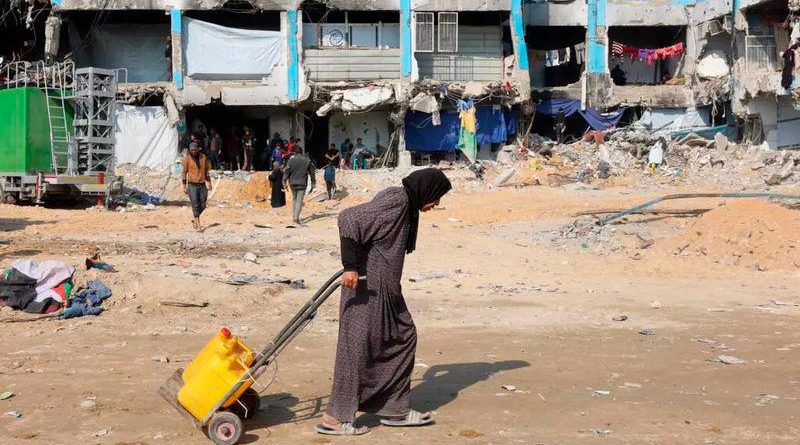



 Memento Maxima Digital Marketing
Memento Maxima Digital Marketing